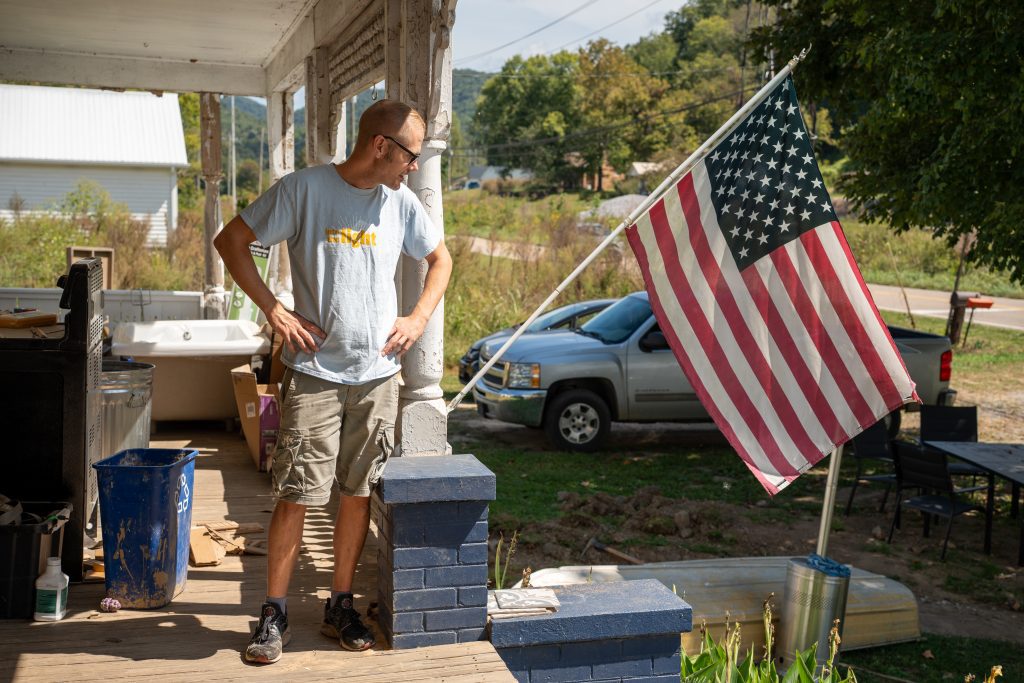Cleaning Up Coal Ash
For well over a century, power plants across the country have burned coal to generate electricity. And for just as long, leftover coal ash has been dumped in open, unlined pits near the power plant, usually located on a river or lake. Every year, U.S. power plants produce 130 million tons of coal ash, which is the second largest waste stream in the country after municipal garbage.
Coal ash concentrates the toxic heavy metals found in coal, including arsenic, mercury, lead and selenium. Stored in unlined, wet impoundments, coal ash has been leaking these toxics into our groundwater and surface waters for years. Sometimes these impoundments collapse — with disastrous results.
Yet government regulations for coal ash management are either non-existent or sparse, and there is little enforcement of the regulations that do exist. In North Carolina, this lack of oversight — and the complicity between state regulators, elected officials and Duke Energy — came to a boiling point in February 2014 when one of Duke’s coal ash impoundments spilled 39 million tons of ash into the Dan River.
Citizens living near North Carolina’s 33 coal ash impoundments — all of which have leaked — have fought for transparency from Duke and the state, and for cleanup of the pollution that threatens their property value, health and family. Their actions forced this issue into the headlines of news networks and to the forefront of environmental justice conversations in the United States.
Appalachian Voices stood with these communities as we worked for years to compel Duke Energy and the N.C. Department of Environmental Quality to excavate coal ash from all the North Carolina sites and dispose of it either in lined, dry landfills, away from waterways, or by recycling it for concrete or other uses, provided it’s done in a manner that protects public health and the environment.
On Jan. 2, 2020, North Carolina announced a historic settlement with one of the state’s most powerful corporations and polluters, Duke Energy. The settlement requires Duke to move nearly 80 million tons of toxic coal ash at six of its power plants to properly lined landfills onsite or recycle it.

Learn information about specific coal ash impoundments in the South, including health threats and safety ratings:
Additional Resources
Fact sheets, videos, links to academic research, and more
Sign Up to Act
Help us protect the health of our communities and waterways.
Latest News
Trump administration announces new efforts to increase electricity prices and pollution
Today, the Trump administration announced a number of new initiatives to prop up coal mining and coal-fired power plants.
Miners and supporters will rally to demand safeguards from black lung disease on Oct. 14
On Oct. 14, coal miners, members of the Black Lung Association and their supporters will rally in front of the Department of Labor’s headquarters in Washington, D.C., in opposition to the department’s delayed enforcement of silica dust protections for miners.
‘We Certainly Have a Long Way to Go’
On the one-year milestone of Hurricane Helene, communities reflect on the challenges they still face on the long road to recovery. The storm caused significant destruction, but it also exacerbated existing issues. New instances of housing insecurity and mental health concerns bubble to the surface every day — and will for months and years to come. For those doing the arduous work of long-term recovery, it feels never-ending.
Advocates alarmed over Army Corps blanket ‘permission to pollute’ proposal in West Virginia
Appalachian Mountain Advocates submitted comments on behalf of six environmental organizations to the Army Corps of Engineers in opposition to a proposal that attempts to skip the agency’s typical review process for certain types of energy projects in West Virginia.
Rockingham County residents voice opposition to the SSEP
North Carolina residents hold signs opposing the Southeast Supply Enhancement Project at the Sept. 4 N.C. DEQ hearing in Kernersville.
Groups appeal to D.C. Circuit in class-action case challenging EPA grant cancellation
Today, lawyers representing Appalachian Voices and other plaintiffs, including nonprofit groups, tribes and local governments, appealed a judge’s decision to dismiss a class-action lawsuit challenging the termination of the U.S. Environmental Protection Agency’s Environmental and Climate Justice Block Grant programs.











